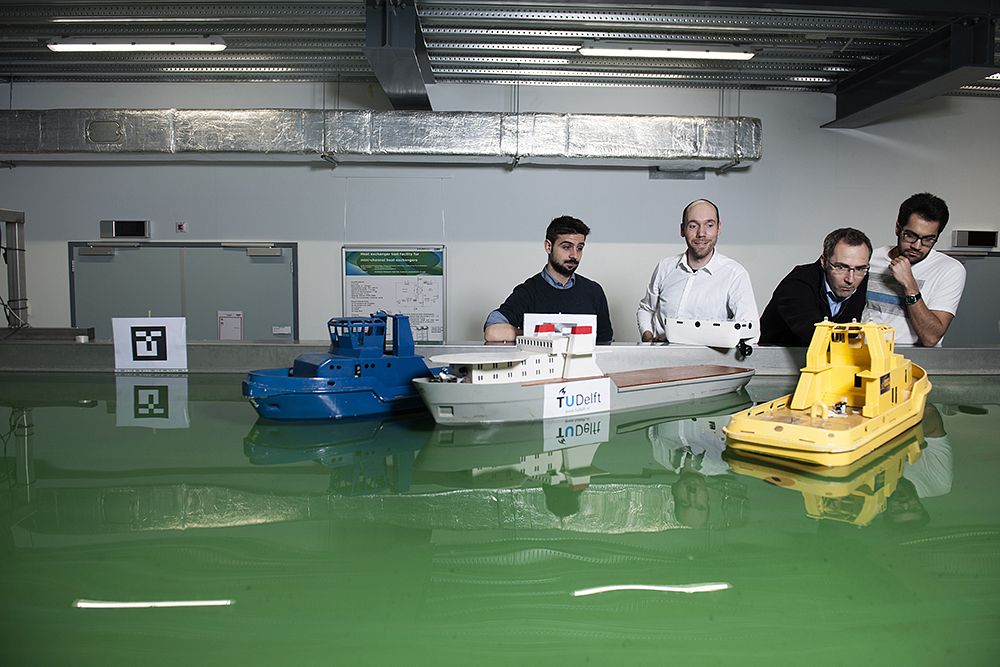TU Delta’s science section brings you the latest ideas and results in engineering, science, and design from TU Delft. We might even report on your work.
Robot boat researchers Vittorio Garofano, Rudy Negenborn, Milinko Godjevac and Ali Haseltalab in their lab. (Foto: Marcel Krijger)
Science editors Tomas van Dijk and Jos Wassink permanently scout for new topics for the science section.
We scan the stream of over 400 PhD theses that are produced by PhD candidates from eight faculties each year. Well aware that it’s impossible to communicate this tsunami of knowledge to you, we pick out what we perceive as the most remarkable, tantalising or societally relevant topics.
‘Acknowledgment of the researcher’s contribution’
Major research grants are another source of news. Rather than just reporting that a grant has been awarded and its amount, we interpret the fact that the research has been selected by a funding agency as an acknowledgment of the researcher’s contribution to the field, even if we may not have noticed the contribution ourselves. In these cases, we’ll try to have a chat with the researcher to see what’s going on.
And then there are the major publications of course. Articles by TU researchers in Science or Nature or other leading magazines are often a good occasion for a post in our science section that offers you the gist of the work, the names of the people involved and the link to the related publication.
‘Bringing your first media experience’
At the other end of the spectrum, we also report on Bachelor projects, Dream teams, startups or Master theses. We appreciate the enthusiasm, the dedication and the original ideas that students invest in their work.
Remember, we’re always scouting for science from Delft. So if you’re working on a cool project that we haven’t covered yet, please contact us. It might bring you your first media exposure.
Do you have a question or comment about this article?
j.w.wassink@tudelft.nl


Comments are closed.